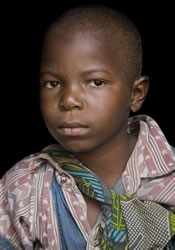Sukuma in Tanzania

Photo Source:
Brian Christopher Magill
|
Send Joshua Project a map of this people group.
|
| People Name: | Sukuma |
| Country: | Tanzania |
| 10/40 Window: | No |
| Population: | 11,788,000 |
| World Population: | 11,788,000 |
| Primary Language: | Sukuma |
| Primary Religion: | Christianity |
| Christian Adherents: | 50.00 % |
| Evangelicals: | 12.00 % |
| Scripture: | Complete Bible |
| Ministry Resources: | Yes |
| Jesus Film: | Yes |
| Audio Recordings: | Yes |
| People Cluster: | Bantu, Central-Tanzania |
| Affinity Bloc: | Sub-Saharan Peoples |
| Progress Level: |
|
Introduction / History
The Sukuma people are the largest people group in Tanzania. The Sukuma live in the northwestern part of the country between Lake Victoria and Lake Rukwa. Their major town center is Mwanza, which is situated on the shore of Lake Victoria. Sukumaland consists mainly of dry savannah or semi-desert and the climate is subtropical. The Sukuma are closely related to the neighboring Nyamwezi people group. About 80% of the people still live in rural areas, although more and more people are moving into the major cities.
What Are Their Lives Like?
Most of the Sukuma people are subsistence farmers and cattle herders, and sweet potatoes and millet are their staple foods. Their main cash crops are cotton and tobacco.
What Are Their Beliefs?
For religious Jews, God is the Supreme Being, the Creator of the universe, and the ultimate judge of human affairs. Most Jews in Venezuela are predominantly Orthodox, and many consider themselves staunch Zionists. Orthodox Jews look for a personal Messiah. The traditional religious beliefs and practices in Jewish literature that interpret Scripture affect ethical, religious, civil, and criminal matters. Jews in Venezuela can practice their traditions openly. Special food permits allow for the import and manufacture of kosher products.
What Are Their Needs?
Jewish people have a wonderful understanding of their connection with the Abrahamic Covenant. However, they also have a history of rejecting Jesus Christ as Messiah, the one who has fulfilled that covenant. They tend to view Christianity as the religion o
Prayer Points
Pray for the Lord to raise up Sukuma Christians who rise above fear of the spirit world and lead others to do the same.
Pray for entire Sumuma families to put all their faith in Jesus Christ.
Pray for Sukuma disciples to make more disciples among Muslis in Tanzania.